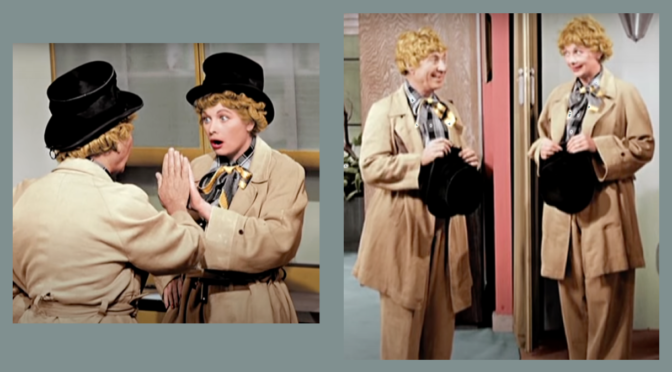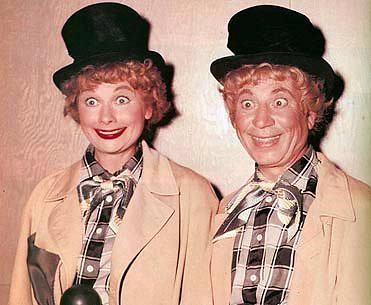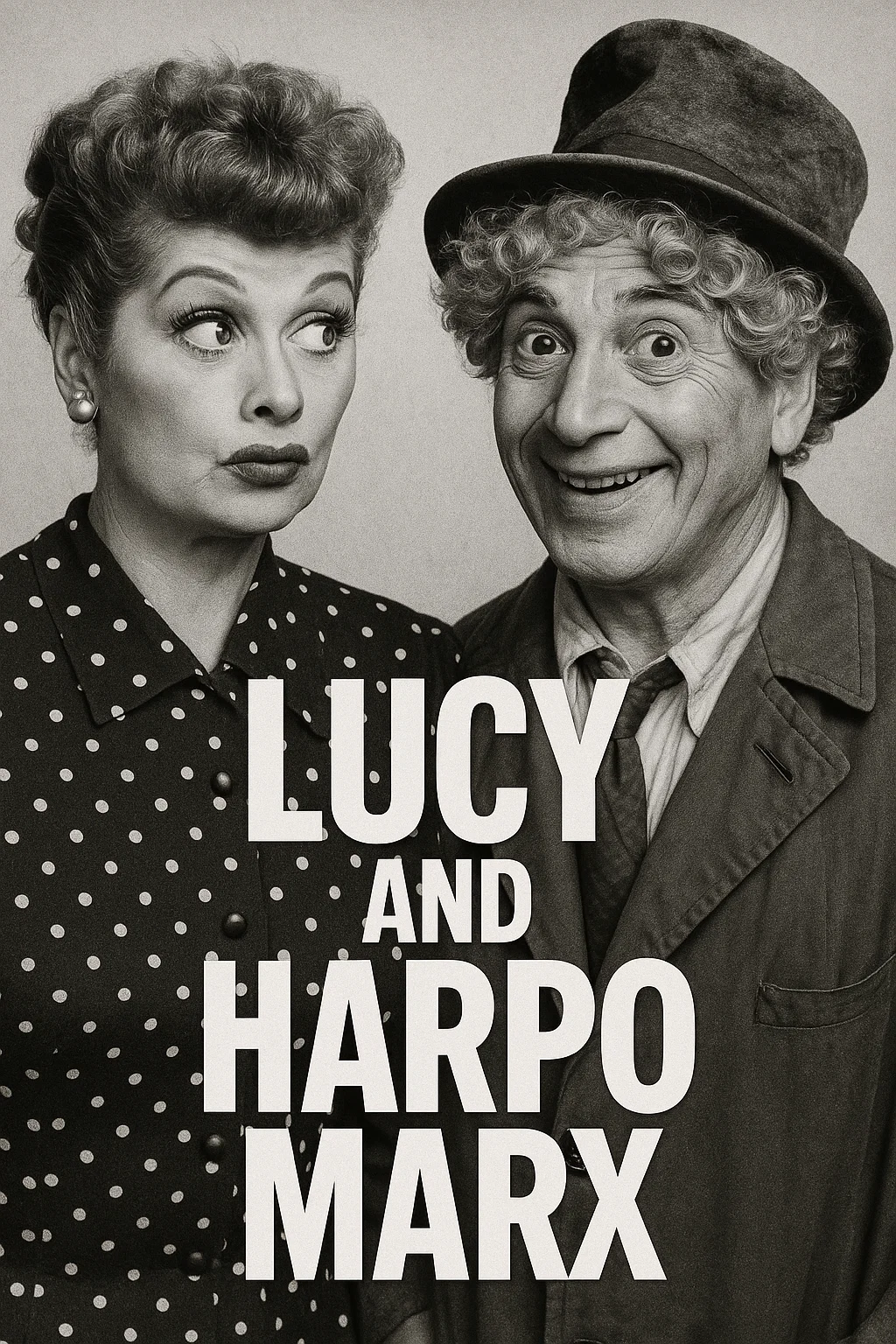
In the history of American television, I Love Lucy remains an iconic sitcom, celebrated for combining family-centered humor with exaggerated everyday situations. One of the standout episodes of Season 4 is “Lucy and Harpo Marx” (Episode 28), where Lucille Ball directly engages with a silent comedy legend—Harpo Marx of the Marx Brothers—creating one of the most memorable comedic moments in TV history.
The Episode’s Context
In this episode, Lucy and Ethel want to impress their friends by showing off their Hollywood connections. When Harpo Marx unexpectedly arrives at the Ricardo household, Lucy—ever impulsive and eager to prove herself—decides to impersonate Harpo in front of the guests. What starts as a simple ruse quickly escalates into a series of hilarious mishaps as Lucy attempts to mimic every gesture, movement, and expression of the famed comedian.

The Mirror Scene – A Classic Comedy Moment
The most iconic scene occurs when Lucy and Harpo stand opposite each other through a “mirror” frame. Lucy meticulously copies Harpo’s every move: tipping his hat, waving, walking, and even blowing the horn. The precision of her imitation, combined with Harpo’s chaotic improvisation, creates a perfectly timed and visually humorous sequence.
This scene exemplifies the power of physical comedy: through body language, facial expression, and rhythm alone, Lucille Ball and Harpo Marx deliver laughter without a single spoken word.
Bridging Two Generations of Comedy
This episode is also culturally significant as it brings together two distinct comedic styles:
- Harpo Marx represents the silent comedy of the 1920s–1930s, characterized by exaggerated physicality and inventive nonverbal humor.
- Lucille Ball symbolizes the modern 1950s sitcom, where family dynamics and everyday life set the stage for clever, character-driven comedy.
The meeting of these two worlds creates a cultural explosion, proving that laughter transcends time and language.

Lucy Ricardo – Bold and Endearing
For Lucy Ricardo, the encounter highlights her defining traits: impulsive, daring, yet irresistibly charming. By impersonating Harpo, she demonstrates her burning desire to be recognized in Hollywood while generating endless comedic chaos. Lucy’s actions reinforce her persona as an ordinary woman with extraordinary ambitions, willing to throw herself headlong into any situation for entertainment.
Legacy and Timeless Appeal
“Lucy and Harpo Marx” is widely regarded as one of I Love Lucy’s comedic high points. The mirror scene has become emblematic of the sitcom itself, often featured in compilations of “Greatest Comedy Moments in American Television.” It proves that physical comedy is timeless, and that Lucille Ball could command laughter without dialogue, leaving a lasting impression on audiences.
More than half a century later, the episode retains its charm, solidifying I Love Lucy’s status as a comedy masterpiece—where ordinary situations and Lucy’s antics continue to entertain, inspire, and influence generations of performers and viewers alike.